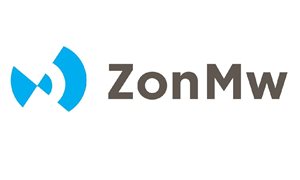 Last January I received a RIMLS travel grant during the New Year’s drinks to visit the 8th international Symposium Sentinel Node Biopsy in Head and Neck Cancer - Consensus Conference from 20-21 April, held at the Royal College of Physicians, London, UK.
Last January I received a RIMLS travel grant during the New Year’s drinks to visit the 8th international Symposium Sentinel Node Biopsy in Head and Neck Cancer - Consensus Conference from 20-21 April, held at the Royal College of Physicians, London, UK.
After an early flight to London on Thursday 19 April, we had the pleasure to enjoy the early signs of spring and the hottest day in April in the last 70 years! While Londoners were enjoying the hot weather, I enjoyed the conference and had the opportunity to both meet international pioneers and exchange experiences in radionuclide- and fluorescence-guided surgery in head and neck cancer.
The sentinel node biopsy is a procedure that is used to identify, remove and examine the first draining lymph node(s) of the regional lymphatic basin of a malignant tumor. Whilst sentinel node biopsies in breast cancer and melanoma show a good sensitivity and specificity and are implemented in the patient’s work-up, the sentinel node procedure in head and neck cancer is still gaining recognition. The sentinel node procedure in early head and neck cancer has already been adopted as the standard of care in several hospitals in The Netherlands, UK, and USA, but general guidelines for this procedure are not yet present. The consensus conference was organized to obtain a consensus and where possible guide clinical practice in the sentinel node biopsy technique in head and neck cancer. In preparation for this symposium, three focus groups were formed from international experts in the field of surgery, pathology and nuclear medicine. They defined several statements that were discussed with all attendees on the first day of the symposium. The response of the audience was recorded. During the conference some panels comprised former patients to verbalize the patients perspective. They were well prepared and they actively participated in each discussion. “We get nervous once we got a tumor, and an innovative and personalized treatment is very important for us”, was stressed by one of the patients. One of the main conclusions from the focus groups was that the sentinel lymph node biopsy in head and neck cancer is an innovative approach for good clinical practice, but defining a consensus is difficult when decisions are based on limited available data.
The symposium gave me insight into achieving a consensus. All discussion points and attendees’ opinions are currently reviewed to produce a consensus. The report that will follow in a short time will provide a guidance for surgeons, pathologists, and nuclear medicine physicians. It will bring a step forward in dealing with the complexity of sentinel node biopsies in head and neck cancer.
Related news items

Joint research in regional hospitals New research projects from promotion fund
22 November 2022Four research projects have been honored in the promotion fund of the Radboudumc and four regional hospitals. The research projects, which are a collaboration between CWZ, Jeroen Bosch Hospital, Rijnstate, Sint Maartenskliniek and the Radboudumc will receive a contribution of 240,000 euros.
go to page
Trained immunity’s role in kidney disease
17 November 2022Researcher(s) Jordi Ochando of the Icahn School of Medicine at Mount Sinai in New York and Raphaël Duivenvoorden of the Department of Nephrology at Radboudumc explain how trained immunity can have detrimental effects in kidney disease and transplantation.
go to page



